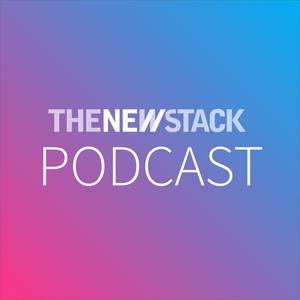
The New Stack Podcast
The New Stack Podcast
The New Stack Podcast is all about the developers, software engineers and operations people who build at-scale architectures that change the way we develop and deploy software. Subscribe to TNS on YouTube at: https://www.youtube.com/c/TheNewStack
- 21 minutes 28 secondsArm: See a Demo About Migrating a x86-Based App to ARM64
The hardware industry is surging, driven by AI's demanding workloads, with Arm—a 35-year-old pioneer in processor IP—playing a pivotal role. In an episode ofThe New Stack Makersrecorded at KubeCon + CloudNativeCon North America, Pranay Bakre, principal solutions engineer at Arm, discussed how Arm is helping organizations migrate and run applications on its technology.
Bakre highlighted Arm’s partnership with hyperscalers like AWS, Google, Microsoft, and Oracle, showcasing processors such as AWS Graviton and Google Axion, built on Arm’s power-efficient, cost-effective Neoverse IP. This design ethos has spurred wide adoption, with 90-95% of CNCF projects supporting native Arm binaries.
Attendees at Arm’s booth frequently inquired about its plans to support AI workloads. Bakre noted the performance advantages of Arm-based infrastructure, delivering up to 60% workload improvements over legacy architectures. The episode also features a demo on migrating x86 applications to ARM64 in both cloud and containerized environments, emphasizing Arm’s readiness for the AI era.
Learn more from The New Stack about Arm:
Arm Eyes AI with Its Latest Neoverse Cores and Subsystem
Big Three in Cloud Prompts ARM to Rethink Software
Join our community of newsletter subscribers to stay on top of the news and at the top of your game.16 January 2025, 12:00 pm - 22 minutes 54 secondsHeroku Moved Twelve-Factor Apps to Open Source. What’s Next?
Heroku has open-sourced its Twelve-Factor App methodology, initially created in 2011 to help developers build portable, resilient cloud applications. Heroku CTO Gail Frederick announced this shift at KubeCon + CloudNativeCon North America, explaining the move aims to involve the community in modernizing the framework. While the methodology inspired a generation of cloud developers, certain factors are now outdated, such as the focus on logs as event streams. Frederick highlighted the need for updates to address current practices like telemetry and metrics visualization, reflecting the rise of OpenTelemetry.
The updated Twelve-Factor methodology will expand to accommodate modern cloud-native realities, such as deploying interconnected systems of apps with diverse backing services. Planned enhancements include supporting documents, reference architectures, and code examples illustrating the principles in action. Success will be measured by its applicability to use cases involving edge computing, IoT, serverless, and distributed systems. Heroku views this open-source effort as an opportunity to redefine best practices for the next era of cloud development.
Learn more from The New Stack about Heroku:
How Heroku Is Positioned To Help Ops Engineers in the GenAI Era
The Data Stack Journey: Lessons from Architecting Stacks at Heroku and Mattermost
Join our community of newsletter subscribers to stay on top of the news and at the top of your game.
2 January 2025, 7:00 pm - 19 minutes 27 secondsHow Falco Brought Real-Time Observability to Infrastructure
Falco, an open-source runtime observability and security tool, was created by Sysdig founder Loris Degioanni to collect real-time system events directly from the kernel. Leveraging eBPF technology for improved safety and performance, Falco gathers data like pod names and namespaces, correlating them with customizable rules. Unlike static analysis tools, it operates in real-time, monitoring events as they occur. In this episode of The New Stack Makers, TNS Editor-in-Chief, Heather Joslyn spoke with Thomas Labarussias, Senior Developer Advocate at Sysdig, Leonardo Grasso, Open Source Tech Lead Manager at Sysdig and Luca Guerra, Sr. Open Source Engineer at Sysdig to get the latest update on Falco.
Graduating from the Cloud Native Computing Foundation (CNCF) in February 2023 after entering its sandbox six years prior, Falco’s maintainers have focused on technical maturity and broad usability. This includes simplifying installations across diverse environments, thanks in part to advancements from the Linux Foundation.
Looking ahead, the team is enhancing core functionalities, including more customizable rules and alert formats. A key innovation is Falco Talon, introduced in September 2023, which provides a no-code response engine to link alerts with real-time remediation actions. Talon addresses a longstanding gap in automating responses within the Falco ecosystem, advancing its capabilities for runtime security.
Learn more from The New Stack about Falco:
Falco Is a CNCF Graduate. Now What?
Falco Plugins Bring New Data Sources to Real-Time Security
eBPF Tools: An Overview of Falco, Inspektor Gadget, Hubble and Cilium
Join our community of newsletter subscribers to stay on top of the news and at the top of your game.
26 December 2024, 12:00 pm - 23 minutes 18 secondsHow cert-manager Got to 500 Million Downloads a Month
Jetstack’s cert-manager, a leading open-source project in Kubernetes certificate management, began as a job interview challenge. Co-founder Matt Barker recalls asking a prospective engineer to automate Let’s Encrypt within Kubernetes. By Monday, the candidate had created kube-lego, which evolved into cert-manager, now downloaded over 500 million times monthly.
Cert-manager’s journey to CNCF graduation, achieved in September, began with its donation to the foundation four years ago. Relaunched as cert-manager, the project grew under engineer James Munnelly, becoming the de facto standard for certificate lifecycle management. The thriving community and ecosystem around cert-manager highlighted its suitability for CNCF stewardship. However, maintainers, including Ashley Davis, noted challenges in navigating differing opinions within its vast user base.
With graduation achieved, cert-manager’s roadmap includes sub-projects like trust-manager, addressing TLS trust bundle management and Istio integration. Barker aims to streamline enterprise-scale deployments and educate security teams on cert-manager’s impact. Cert-manager has become integral to cloud-native workflows, promising to simplify hybrid, multicloud, and edge deployments.
Learn more from The New Stack about cert-manager:
Jetstack’s cert-manager Joins the CNCF Sandbox of Cloud Native Technologies
Jetstack Secure Promises to Ease Kubernetes TLS Security
Join our community of newsletter subscribers to stay on top of the news and at the top of your game.
19 December 2024, 12:00 pm - 21 minutes 10 secondsWhy Are So Many Developers Out of Work in 2024?
The tech industry faces a paradox: despite high demand for skills, many developers and engineers are unemployed. At KubeCon + CloudNativeCon North America in Salt Lake City, Utah, Andela and the Cloud Native Computing Foundation (CNCF) announced an initiative to train 20,000 technologists in cloud native computing over the next decade. oss O'neill, Senior Program Manager at Andela and Chris Aniszczyk, CNCF’s CTO, highlighted the lack of Kubernetes-certified professionals in regions like Africa and emphasized the need for global inclusivity to make cloud native technology ubiquitous.
Andela, operating in over 135 countries and founded in Nigeria, views this program as a continuation of its mission to upskill African talent, aligning with its partnerships with tech giants like Google, AWS, and Nvidia. This initiative also addresses the increasing employer demand for Kubernetes and modern cloud skills, reflecting a broader skills mismatch in the tech workforce.
Aniszczyk noted that companies urgently seek expertise in cloud native infrastructure, observability, and platform engineering. The partnership aims to bridge these gaps, offering opportunities to meet evolving global tech needs.
Learn more from The New Stack about developer talent, skills and needs:
Top Developer Skills for AI and Cloud Jobs
5 Software Development Skills AI Will Render Obsolete
Cloud Native Skill Gaps are Killing Your Gains
Join our community of newsletter subscribers to stay on top of the news and at the top of your game.
12 December 2024, 1:45 pm - 25 minutes 50 secondsMapLibre: How a Fork Became a Thriving Open Source Project
When open source projects shift to proprietary licensing, forks and new communities often emerge. Such was the case with MapLibre, born from Mapbox’s 2020 decision to make its map rendering engine proprietary. In conjunction with All Things Open 2024, Seth Fitzsimmons, a principal engineer at AWS and Tarus Balog, principal technical strategist for open source at AWS shared that this engine, popular for its WebGL-powered vector maps and dynamic customization features, was essential for organizations like BMW, The New York Times, and Instacart. However, Mapbox’s move disappointed its open-source user base by tying the upgraded Mapbox GL JS library to proprietary products.
In response, three users forked the engine to create MapLibre, committing to modernizing and preserving its open-source ethos. Despite challenges—forking often struggles to sustain momentum—MapLibre has thrived, supported by contributors and corporate sponsors like AWS, Meta, and Microsoft. Notably, a community member transitioned the project from JavaScript to TypeScript over nine months, showcasing the dedication of unpaid contributors.
Thanks to financial backing, MapLibre now employs maintainers, enabling it to reciprocate community efforts while fostering equality among participants. The project illustrates the resilience of open-source communities when proprietary shifts occur.
Learn more from The New Stack about forking open source projects:
Why Do Open Source Projects Fork?
OpenSearch: How the Project Went From Fork to Foundation
Join our community of newsletter subscribers to stay on top of the news and at the top of your game.
5 December 2024, 12:00 pm - 17 minutes 16 secondsOpenSearch: How the Project Went from Fork to Foundation
At All Things Open in October, Anandhi Bumstead, AWS’s director of software engineering, highlighted OpenSearch's journey and the advantages of the Linux Foundation's stewardship. OpenSearch, an open source data ingestion and analytics engine, was transferred by Amazon Web Services (AWS) to the Linux Foundation in September 2024, seeking neutral governance and broader community collaboration. Originally forked from Elasticsearch after a licensing change in 2021, OpenSearch has evolved into a versatile platform likened to a “Swiss Army knife” for its broad use cases, including observability, log and security analytics, alert detection, and semantic and hybrid search, particularly in generative AI applications.
Despite criticism over slower indexing speeds compared to Elasticsearch, significant performance improvements have been made. The latest release, OpenSearch 2.17, delivers 6.5x faster query performance and a 25% indexing improvement due to segment replication. Future efforts aim to enhance indexing, search, storage, and vector capabilities while optimizing costs and efficiency. Contributions are welcomed via opensearch.org.
Learn more from The New Stack about deploying applications on OpenSearch
AWS Transfers OpenSearch to the Linux Foundation
From Flashpoint to Foundation: OpenSearch’s Path Clears
Semantic Search with Amazon OpenSearch Serverless and Titan
Join our community of newsletter subscribers to stay on top of the news and at the top of your game.
26 November 2024, 12:00 pm - 25 minutes 26 secondsIs Apache Spark Too Costly? An Amazon Engineer Tells His Story
Is Apache Spark too costly? Amazon Principal Engineer Patrick Ames tackled this question during an interview with The New Stack Makers, sharing insights into transitioning from Spark to Ray for managing large-scale data. Ames, described as a "go-to" engineer for exabyte-scale projects, emphasized a goal-driven approach to solving complex engineering problems, from simplifying daily chores to optimizing software solutions.
Initially, Spark was chosen at Amazon for its simplicity and open-source flexibility, allowing efficient merging of data with minimal SQL code. The team leveraged Spark in a decoupled architecture over S3 storage, scaling it to handle thousands of jobs daily. However, as data volumes grew to hundreds of terabytes and beyond, Spark’s limitations became apparent. Long processing times and high costs prompted a search for alternatives.
Enter Ray—a unified framework designed for scaling AI and Python applications. After experimentation, Ames and his team noted significant efficiency improvements, driving the shift from Spark to Ray to meet scalability and cost-efficiency needs.
Learn more from The New Stack about Apache Spark and Ray:
Amazon to Save Millions Moving From Apache Spark to Ray
How Ray, a Distributed AI Framework, Helps Power ChatGPT
Join our community of newsletter subscribers to stay on top of the news and at the top of your game.
21 November 2024, 12:00 pm - 28 minutes 53 secondsCodiac: Kubernetes Doesn't Need To Be That Complex
In this New Stack Makers, Codiac aims to simplify app deployment on Kubernetes by offering a unified interface that minimizes complexity. Traditionally, Kubernetes is powerful but challenging for teams due to its intricate configurations and extensive manual coding. Co-founded by Ben Ghazi and Mark Freydl, Codiac provides engineers with infrastructure on demand, container management, and advanced software development life cycle (SDLC) tools, making Kubernetes more accessible.
Codiac’s interface streamlines continuous integration and deployment (CI/CD), reducing deployment steps to a single line of code within CI/CD pipelines. Developers can easily deploy, manage containers, and configure applications without mastering Kubernetes' esoteric syntax. Codiac also offers features like "cabinets" to organize assets across multi-cloud environments and enables repeatable processes through snapshots, making cluster management smoother.
For experienced engineers, Codiac alleviates the burden of manually managing YAML files and configuring multiple services. With ephemeral clusters and repeatable snapshots, Codiac supports scalable, reproducible development workflows, giving engineers a practical way to manage applications and infrastructure seamlessly across complex Kubernetes environments.
Learn more from The New Stack about deploying applications on Kubernetes:
Kubernetes Needs to Take a Lesson from Portainer on Ease-of-Use
Three Common Kubernetes Challenges and How to Solve Them
Join our community of newsletter subscribers to stay on top of the news and at the top of your game.
14 November 2024, 5:30 pm - 22 minutes 14 secondsValkey: What’s New and What’s Next?
Valkey, an open-source fork of Redis launched in March, introduced its multithreaded Version 8.0 in September, now available through AWS ElastiCache. At All Things Open 2024 in Raleigh, AWS's Kyle Davis explains that Valkey was developed after Redis changed to a restrictive license, drawing contributors from companies like AWS, Google, Alibaba, and Oracle. Notably, some contributors emerged independently, including a significant contributor from Vietnam. Version 8.0 differentiates itself from Redis by leveraging multithreaded CPUs, addressing the efficiency of I/O operations in modern hardware. Additionally, data structure refinements were made to improve memory efficiency by up to 20%, particularly benefiting large-key databases.
Looking ahead, Valkey plans two annual updates, with the next release expected in 2025. New modules are anticipated, including a JSON module for efficient data manipulation and a Bloom filter for probabilistic data presence checks. Version 9.0 may bring substantial changes to clustering, updating it to better leverage modern technologies. The Valkey project aims to continue evolving its capabilities to meet the demands of advanced data storage needs.
Learn more from The New Stack about Valkey:
Valkey Is a Different Kind of Fork
AWS Adds Support, Drops Prices, for Redis-Forked Valkey
Valkey: A Redis Fork With a Future
Join our community of newsletter subscribers to stay on top of the news and at the top of your game.
7 November 2024, 12:00 pm - 29 minutes 15 secondsWhy Beginning Developers Love Python
Deb Nicholson, executive director of the Python Software Foundation, attributes Python’s popularity to its minimal syntactical complexity, which appeals to beginners and seasoned developers alike. Python allows flexibility for those exploring coding without a specific focus, unlike purpose-built languages. Since her leadership began in 2022, Nicholson has overseen the foundation’s role in managing Python’s fiscal and operational needs, including the package index that hosts over half a million add-ons. This open ecosystem enables contributions from large corporations and individual developers while demanding vigilant security measures.
Nicholson envisions Python's future advancements, particularly in improving multi-threading and expanding usage in mobile development. She acknowledges Python’s critical role in AI and data science but remains cautious about AI’s pervasive application, likening it to a temporary trend. On open source in the enterprise, Nicholson critiques companies profiting from open-source tools while adopting restrictive licenses. Instead, she admires models like Red Hat’s, which leverage open source sustainably without compromising accessibility or innovation.
Learn more from The New Stack about Python:
Python 3.13: Blazing New Trails in Performance and Scale
The Top 5 Python Packages and What They Do
Python Mulls a Change in Version Numbering
Join our community of newsletter subscribers to stay on top of the news and at the top of your game.
31 October 2024, 11:00 am - More Episodes? Get the App
Your feedback is valuable to us. Should you encounter any bugs, glitches, lack of functionality or other problems, please email us on [email protected] or join Moon.FM Telegram Group where you can talk directly to the dev team who are happy to answer any queries.
 Go Time: Golang, Software Engineering
Go Time: Golang, Software Engineering
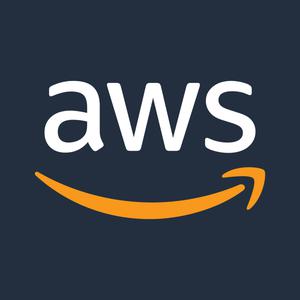 AWS Podcast
AWS Podcast
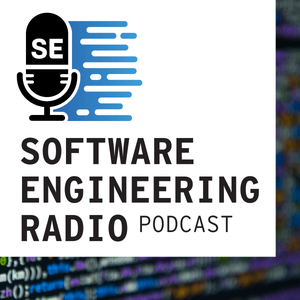 Software Engineering Radio - the podcast for professional software developers
Software Engineering Radio - the podcast for professional software developers
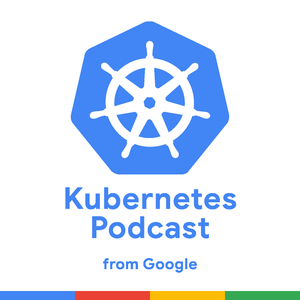 Kubernetes Podcast from Google
Kubernetes Podcast from Google
 The Cloudcast
The Cloudcast
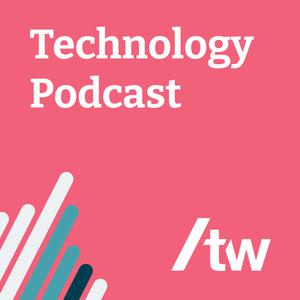 Thoughtworks Technology Podcast
Thoughtworks Technology Podcast